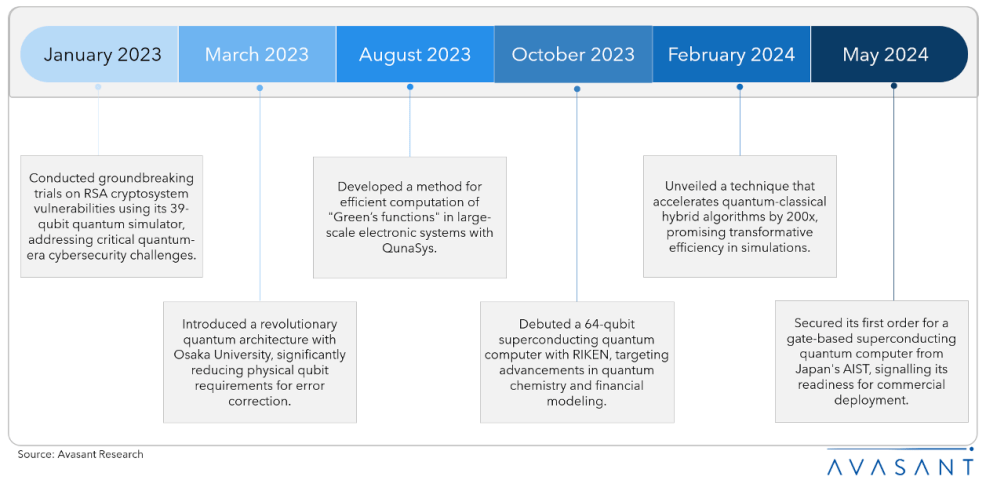The quantum era is no longer a distant dream; it is closer than expected, and enterprises are scrambling to keep up. Once dismissed as a futuristic concept at least a decade away from practical use, quantum computing has burst onto the radar of corporate leaders worldwide. This shift is fueled by the rise of generative AI in 2022, a seismic moment that showed how transformative technology can rewrite business rules overnight.
For many organizations, this was a wake-up call. If generative AI could disrupt industries in months, what’s stopping quantum computing from doing the same? Enterprises now realize the risk of being caught unprepared for a technology that could redefine everything from logistics to cybersecurity.
Savvy companies are no longer waiting for quantum to “arrive.” They are diving in—building knowledge, exploring use cases, and piloting projects in materials science, cryptography, and AI optimization. This is not just preparation; it is a competitive race to harness quantum’s potential before it disrupts the market.
As this phenomenon picks up momentum, forward-thinking organizations are emerging as leaders, proving that those who embrace quantum now may dictate the rules of tomorrow. For laggards, the cost of waiting could be irrelevance in a quantum-driven world.

Figure1: Enterprise adoption of quantum technology
The global quantum race is heating up, with hardware vendors intensifying efforts to produce logical qubits with advanced error correction. At the same time, software developers are racing to create algorithms capable of addressing real-world challenges as large-scale quantum systems become viable. While most players focus on niche areas—hardware, software, or applications—Fujitsu is breaking the mold with a fully integrated strategy that spans the entire quantum value chain.
At its recent Executive Analyst Day 2024 in Pune, India, Fujitsu showcased a groundbreaking 64-qubit superconducting quantum chip. Dr. Shintaro Sato, fellow and head of the quantum laboratory, shared an audacious road map: a 256-qubit quantum system by 2025 and a leap to over 1,000 qubits by 2026.
“This is not just about scaling numbers; it is about solving the world’s most complex problems. Fujitsu’s relentless pursuit of quantum advantage combines advanced hardware with software innovation and real-world application development to tackle complex challenges from drug discovery to cryptography.”, stated Dr. Shintaro Sato.

Figure 2: Fujitsu’s quantum stack
Fujitsu’s Quantum Breakthroughs Over the Years
Fujitsu, a trailblazer in computing with decades of expertise, is transforming its legacy with a bold push into next-generation computing with advancements in quantum technologies and high-performance computing (HPC). Leveraging the supercomputer Fugaku, which was developed in partnership with RIKEN, and advanced HPC systems, the company is now setting the stage for quantum-powered breakthroughs. Fujitsu’s efforts span the entire quantum value chain, fuelled by its R&D hub in Bangalore, established in 2022, and global collaborations with institutions such as RIKEN, TU Delft, and Osaka University, and industry leaders such as Keysight Technologies. Over the past two years, Fujitsu has transformed its research into actionable breakthroughs, showcasing a bold commitment to quantum advancements.

Figure 3: Fujitsu’s quantum hardware and software launches over the past 24 months
Key Takeaways
Fujitsu’s strategy demonstrates a rapid transition from research to real-world applications while establishing a differentiated value proposition in the competitive quantum computing landscape. The following are some of its key highlights:
-
- Scalable Hardware Architecture
Leveraging a 3D-tiled approach, Fujitsu aims for a seamless scaling from 64 qubits to over 1,000 qubits by minimizing challenges related to interconnects, wiring, and control systems. This modular design accelerates scalability without compromising efficiency. - Legacy in High-Performance Computing
Fujitsu’s extensive expertise in HPC positions it as a frontrunner in the quantum computing space. Its robust HPC capabilities not only aid in the development of advanced quantum AI algorithms but also play a pivotal role in addressing key challenges such as error correction—an essential differentiator in scaling quantum systems for real-world applications. - Multi-Hardware Architecture Approach
Fujitsu adopts a versatile strategy, exploring diverse architectures, including superconducting and emerging technologies such as diamond spin qubits. This approach broadens its potential to tackle varied use cases, from quantum computing to quantum communications. - Qubit-Resource Efficiency
Leveraging its STAR architecture, Fujitsu can reduce the qubit resources required for practical algorithms. This innovation optimizes computational requirements, enabling applications such as drug discovery and financial modeling to progress into production without waiting for large-scale qubit availability from industry giants like IBM or Google.
- Scalable Hardware Architecture
By Chandrika Dutt, Associate Research Director, Avasant

